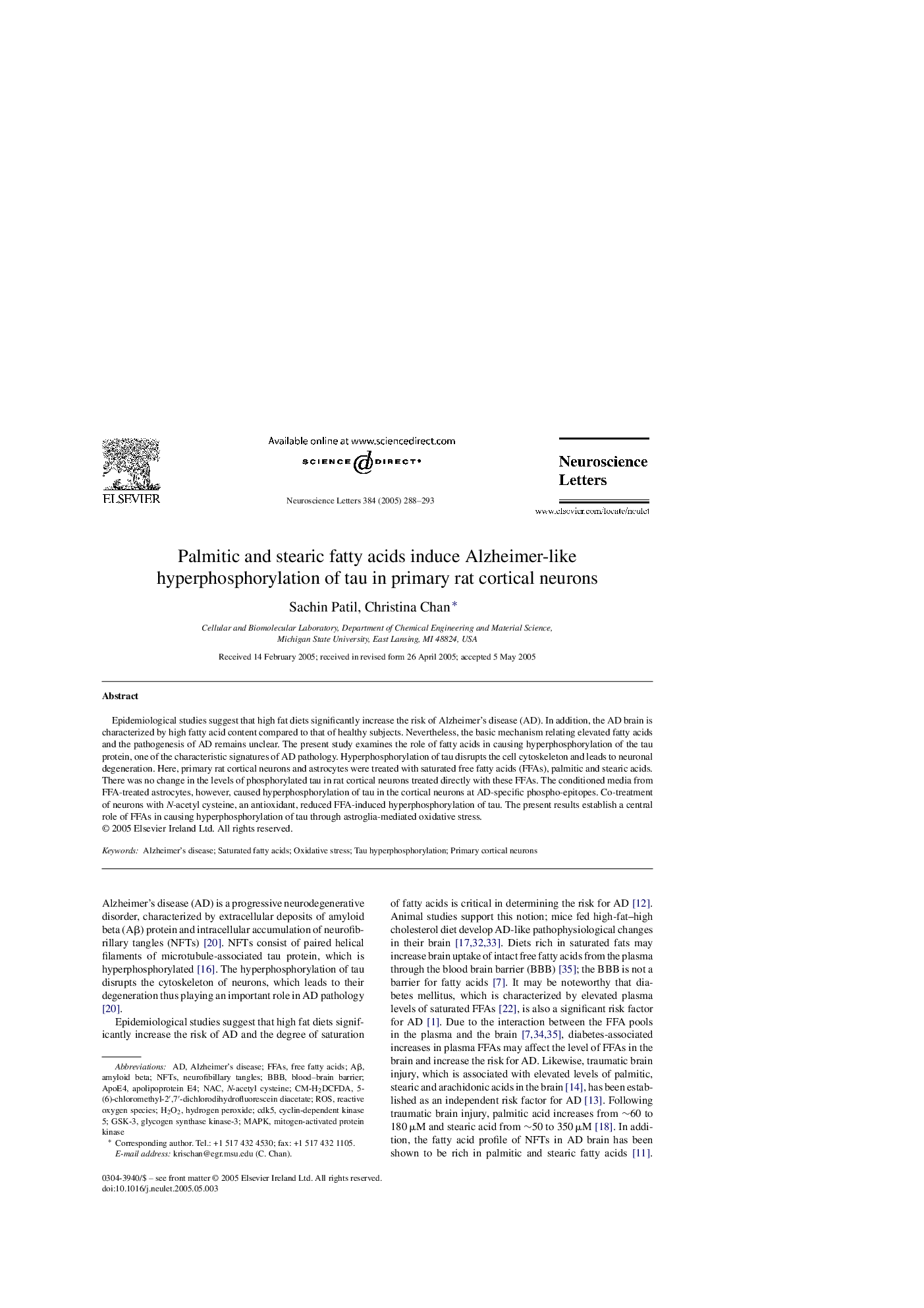| Article ID | Journal | Published Year | Pages | File Type |
|---|---|---|---|---|
| 9429134 | Neuroscience Letters | 2005 | 6 Pages |
Abstract
Epidemiological studies suggest that high fat diets significantly increase the risk of Alzheimer's disease (AD). In addition, the AD brain is characterized by high fatty acid content compared to that of healthy subjects. Nevertheless, the basic mechanism relating elevated fatty acids and the pathogenesis of AD remains unclear. The present study examines the role of fatty acids in causing hyperphosphorylation of the tau protein, one of the characteristic signatures of AD pathology. Hyperphosphorylation of tau disrupts the cell cytoskeleton and leads to neuronal degeneration. Here, primary rat cortical neurons and astrocytes were treated with saturated free fatty acids (FFAs), palmitic and stearic acids. There was no change in the levels of phosphorylated tau in rat cortical neurons treated directly with these FFAs. The conditioned media from FFA-treated astrocytes, however, caused hyperphosphorylation of tau in the cortical neurons at AD-specific phospho-epitopes. Co-treatment of neurons with N-acetyl cysteine, an antioxidant, reduced FFA-induced hyperphosphorylation of tau. The present results establish a central role of FFAs in causing hyperphosphorylation of tau through astroglia-mediated oxidative stress.
Keywords
GSK-3APOE4cdk5NFTsAβNACFFAsCM-H2DCFDAMAPKROSHydrogen peroxideapolipoprotein E4Free fatty acidssaturated fatty acidsamyloid betaAlzheimer's diseaseOxidative stressBlood–brain barrierBBBcyclin-dependent kinase 5Primary cortical neuronsN-acetyl cysteineH2O2Tau hyperphosphorylationmitogen-activated protein kinaseglycogen synthase kinase-3Reactive oxygen species
Related Topics
Life Sciences
Neuroscience
Neuroscience (General)
Authors
Sachin Patil, Christina Chan,
